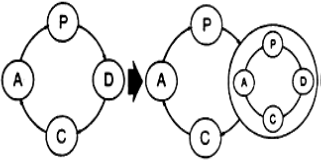The Seven Tools For Quality Control
Introduction:
‘Quality story’ has become a standardized quality improvement process in which Japanese quality circles are trained to follow. ‘The seven tools of quality control’ is a phrase which originated from Japan and is inseparable from quality circles.
Quality circle:
A quality circle is:
• A small group
• Voluntarily carrying out quality control activities
• Within its own work area.
This small group, where each member participates, carries out:
• Continuously
• As part of the company’s total quality control activities
• Quality and improvement
• Within its own work area
• using quality control techniques.
One of the reasons for the success of the so-called quality circles in Japan is that in the ‘Deming cycle’ a substantial part of the activities—‘check’, ‘action’ and ‘planning’— have been transferred to the ‘process level’ (operator level).
How important the different quality control techniques are depends on the nature of the problem.

Transfer of PDCA activities to the ‘do’ level
The most important quality technique in Japan is the cause-and-effect diagram and as the Pareto diagram is often used in connection with the cause-and-effect diagram, it is not surprising that this quality technique in Japan is ranked as number 2.
- All employees, including management, need training in the use of a number of the basic quality tools.
- Only through familiarity with these tools can give employees the deep understanding of the concept of variation necessary for total commitment to quality.
- Management and employees in most Western firms have only a superficial knowledge of these tools.
- Some of them will be familiar from school and college (e.g. with stratification, check sheets, histograms and scatter diagrams) but it is not always fully appreciated that they can actually be used in combination to great effect in the quality improvement cycle (PDCA) in all the firm’s functions and at all levels.
- The basic principles underlying the methods also are not fully understood. In Japan, quality training courses for managers attach great importance to these basic principles.